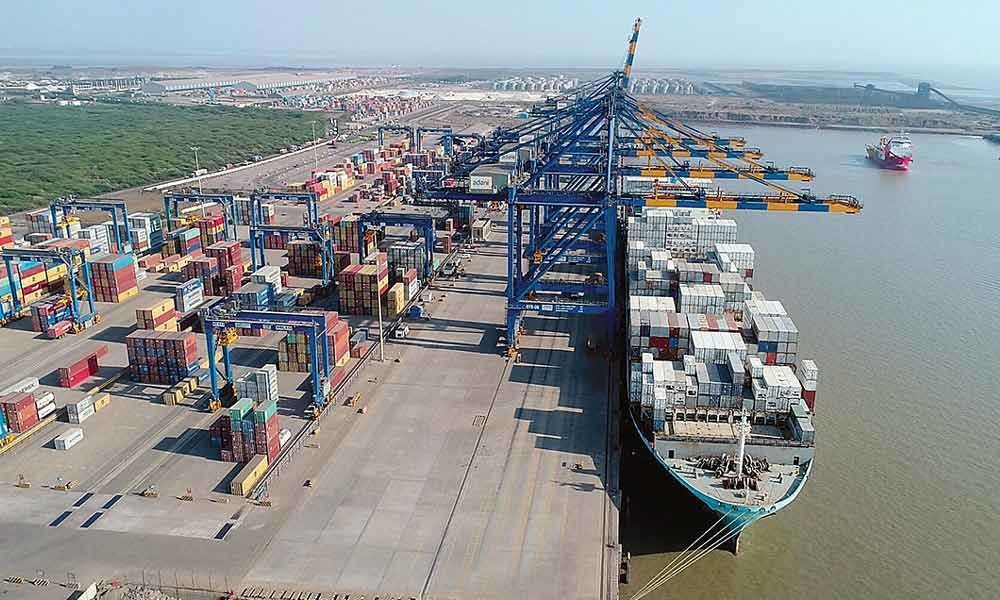
India set to play a powerful role for the ambitious IMEEC corridor
NEW DELHI : Indian ports, with their rich historical heritage and strategic importance, are set to play a crucial role in catapulting global trade to the next level.
The India-UAE Virtual Trade Corridor deal signed in the presence of the visiting Abu Dhabi Crown Prince Sheikh Khalend Bin Mohamed Bin Zayed Al Nahyan, was one of the two agreements signed with the increasingly critical Gulf ally on September 10. The deal, according to officials is a crucial step towards the India-Middle East-Europe Economic Corridor (IMEEC) and will reduce administrative processes and time, logistics and transport costs and will also enhance ease of doing business.
At the forefront of the ambitious IMEC are Indian ports which will play a pivotal role in India’s journey to becoming a $5 trillion economy. The project envisages a sea-link between India and Jabel Ali port in UAE from where a rail with transport the goods to the Haifa port in Israel via Saudi Arabia and Jordan. From here, goods will again be shipped to Europe via the sea route.
Industry experts say that the number of Indian seafarers in global shipping is expected to increase to 20 per cent in the next decade from the current 10 per cent. And, with more than 90 per cent of global trade moving via shipping, the role of Indian ports and shippers is expected to explode. Many big ships of the world are completely dependent on Indian sailors.
Karan Adani, Managing Director, Adani Ports and Special Economic Zone (APSEZ) says, “by the year 2030, India can achieve the capacity to handle a volume of 100 crore tonnes and can also become the centre point of the region by creating a reliable supply chain for neighbouring countries.”
According to a report by McKinsey & Company, the Indian maritime sector is currently worth about $130 billion and is expected to grow to $300 billion by 2025. Of this, the share of the shipping industry is estimated to be around $95 billion, while the share of ports will be around $60 billion.
JSW Group Chairman Sajjan Jindal cited the example of Singapore and said, “we can also create such ports which handle not just our own cargo but also of the countries around us.”
India is already in the ‘whitelist’ of the International Maritime Organization. The listing guarantees proper licensing systems, training centres, flag state control and port state control in the member countries and propels great demand for the Indian maritime players.
Major ports in India handled 818 million tons (MT) of cargo traffic in FY24, up 4.45 per cent from 784 MT in FY 2023. This comprised a large part of India’s merchandise exports and imports.
In 2024 and beyond, the maritime transportation remains one of the fastest growing sectors, full of challenges and opportunities. These range from green targets to regulations and some wavy situations like geopolitical tensions and supply chain issues. India, with its extensive coastline of nearly 7,500 km, lies on the strategic European-Asian route. It is in the perfect position to play a vital role in the global maritime trade network and offers immense potential for substantial economic growth and development.
Already, work is underway on war footing to reach targets defined under the Maritime India Vision 2030 and work towards the Maritime Amrit Kaal Vision 2047.

